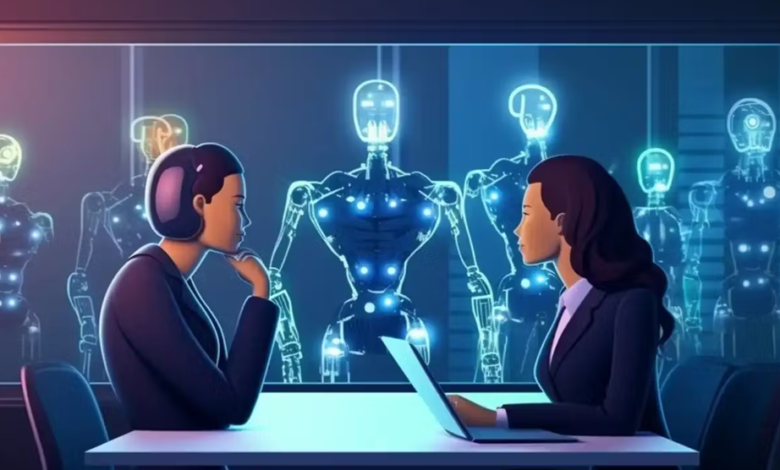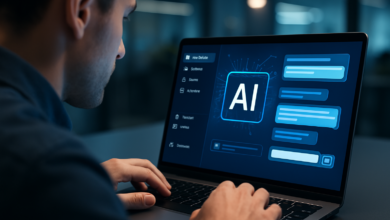The Future of HR: How AI is Transforming Human Resource Planning and Strategy

The Role of AI in Modern HR Strategy
Artificial intelligence is revolutionizing every aspect of business, and human resources (HR) is no exception. From talent acquisition to workforce planning, AI is reshaping HR strategies to be more data-driven and efficient. Companies are increasingly leveraging AI for HR planning and strategy to streamline operations and enhance decision-making.
AI-Powered HR Planning
HR professionals have long relied on historical data and intuition for workforce planning. However, AI introduces a level of precision that was previously unattainable. By analyzing trends and predictive analytics, AI helps HR leaders anticipate hiring needs, optimize workforce distribution, and reduce turnover rates.
See also: Overcoming Challenges in Furniture Hardware Manufacturing with Innovative Technologies
Benefits of AI in HR Planning:
- Predictive Analytics: AI forecasts workforce needs based on data patterns, preventing staffing shortages or excess.
- Efficiency in Hiring: AI-driven recruitment tools filter applications faster, identifying top talent with greater accuracy.
- Workforce Optimization: AI recommends strategies for balancing workloads and improving team productivity.
AI Agents for HR Automation
Automation is a critical aspect of AI’s role in HR. With AI agents for Human Resources, businesses can automate various HR functions such as onboarding, performance management, and employee engagement. These AI-driven agents act as virtual assistants, reducing administrative burdens and improving employee experiences.
Key Areas Where AI Agents Help:
- Onboarding and Training: AI chatbots provide interactive onboarding experiences, ensuring new hires integrate seamlessly.
- Employee Assistance: AI agents answer routine HR queries, freeing up HR personnel for strategic tasks.
- Performance Monitoring: AI evaluates employee performance using real-time data, offering actionable insights for improvement.
Enhancing Talent Acquisition with AI
Recruitment is one of the most time-consuming HR functions, but AI significantly accelerates the process. By scanning resumes, assessing skills, and even conducting initial interviews through AI-powered chatbots, companies can hire faster and more effectively.
AI’s Impact on Hiri
- Automated Resume Screening: AI quickly filters through thousands of applications, ensuring only qualified candidates move forward
- Bias-Free Recruitment: AI removes unconscious biases in hiring by evaluating candidates based on merit alone.
- Data-Driven Decisions: AI analyzes candidate data to predict long-term fit within the organization.
AI in Employee Engagement and Retention
Keeping employees engaged and reducing turnover are major challenges for HR departments. AI-driven tools analyze employee sentiments, track engagement levels, and provide personalized recommendations to boost morale and retention.
AI Strategies for Employee Engagement:
- Sentiment Analysis: AI monitors employee feedback to detect dissatisfaction and suggest improvements.
- Personalized Career Pathing: AI recommends career development plans tailored to each employee’s strengths and goals.
- Proactive Retention Strategies: AI identifies flight-risk employees, enabling HR to address concerns before they escalate.
Challenges and Considerations in AI Adoption
Despite its numerous benefits, AI adoption in HR is not without challenges. Companies must navigate issues such as data privacy, ethical considerations, and workforce resistance to automation.
Addressing AI Challenges:
- Ensuring Data Security: HR departments must implement robust cybersecurity measures to protect sensitive employee information.
- Maintaining Human Oversight: AI should complement human decision-making rather than replace it.
- Training Employees: Organizations should invest in training programs to help HR teams adapt to AI-powered tools.
The Future of AI in HR
AI’s role in HR will continue to expand, making processes more efficient and strategic. As machine learning algorithms become more sophisticated, HR professionals can leverage AI to enhance workforce planning, improve employee experiences, and drive business success.
What’s Next?
- AI-Powered Predictive Hiring: Future AI tools will predict candidate success with even greater accuracy.
- Advanced HR Chatbots: AI chatbots will become more conversational and capable of handling complex HR queries.
- AI-Driven Learning Platforms: Personalized learning experiences will be tailored to individual employee needs.
Conclusion
AI is transforming HR from a traditionally reactive function into a proactive, data-driven powerhouse. By integrating AI into HR planning, talent acquisition, and employee engagement, businesses can create more efficient, fair, and strategic HR processes. Companies that embrace AI in HR today will gain a competitive edge in attracting and retaining top talent in the future.



